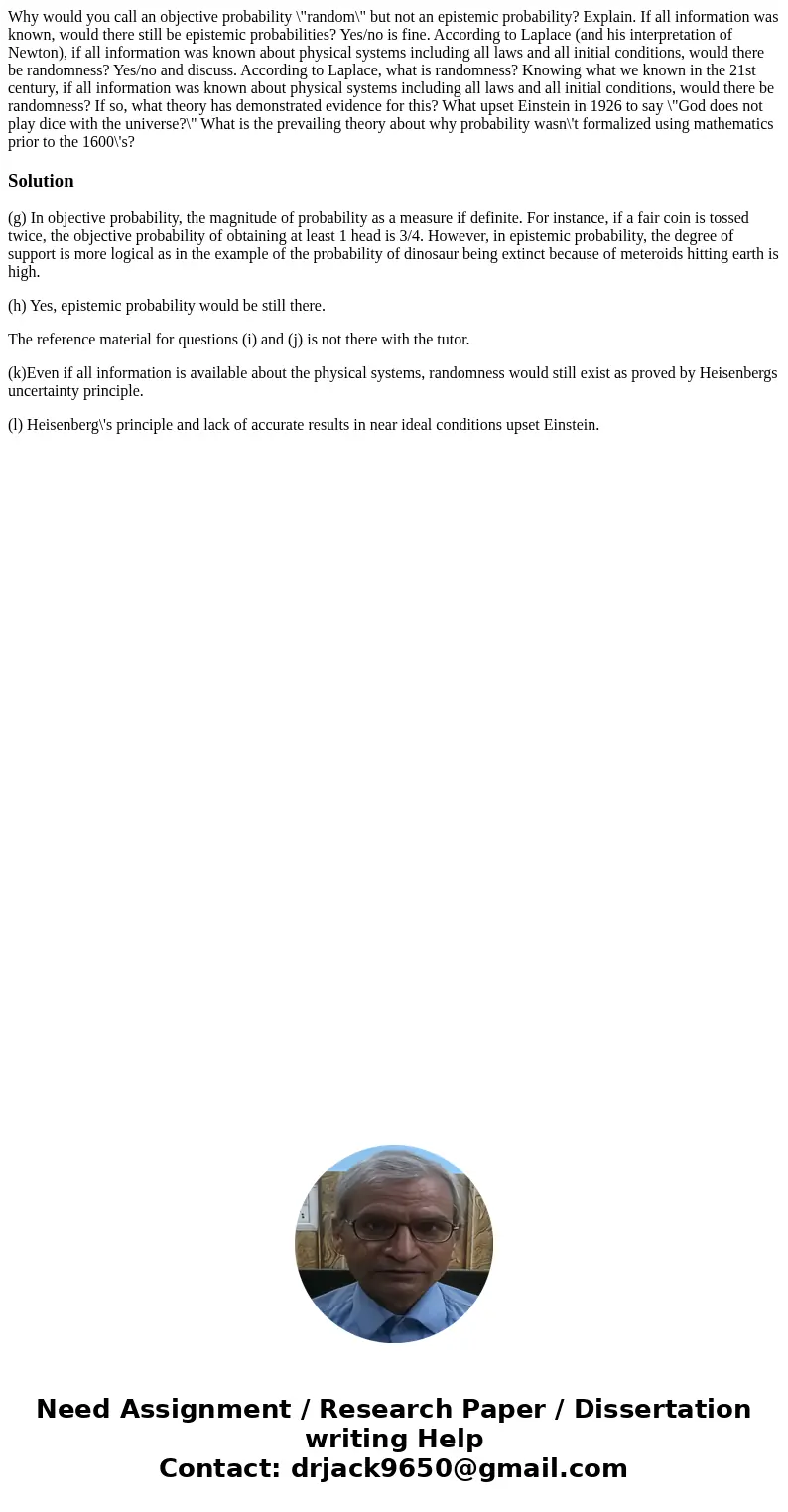Why would you call an objective probability random but not a
Why would you call an objective probability \"random\" but not an epistemic probability? Explain. If all information was known, would there still be epistemic probabilities? Yes/no is fine. According to Laplace (and his interpretation of Newton), if all information was known about physical systems including all laws and all initial conditions, would there be randomness? Yes/no and discuss. According to Laplace, what is randomness? Knowing what we known in the 21st century, if all information was known about physical systems including all laws and all initial conditions, would there be randomness? If so, what theory has demonstrated evidence for this? What upset Einstein in 1926 to say \"God does not play dice with the universe?\" What is the prevailing theory about why probability wasn\'t formalized using mathematics prior to the 1600\'s?
Solution
(g) In objective probability, the magnitude of probability as a measure if definite. For instance, if a fair coin is tossed twice, the objective probability of obtaining at least 1 head is 3/4. However, in epistemic probability, the degree of support is more logical as in the example of the probability of dinosaur being extinct because of meteroids hitting earth is high.
(h) Yes, epistemic probability would be still there.
The reference material for questions (i) and (j) is not there with the tutor.
(k)Even if all information is available about the physical systems, randomness would still exist as proved by Heisenbergs uncertainty principle.
(l) Heisenberg\'s principle and lack of accurate results in near ideal conditions upset Einstein.

 Homework Sourse
Homework Sourse